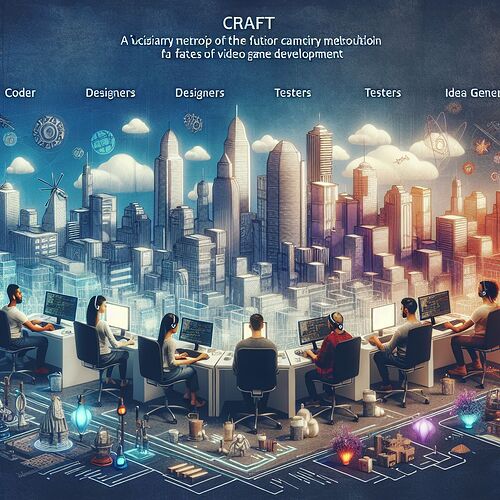How to Start a Career in Video Game Development
Embarking on a career in video game development can be an exciting and rewarding journey. Whether you're passionate about coding, design, or storytelling, the video game industry offers a wide array of opportunities. Here’s a detailed guide to help you get started.
1. Understand the Different Roles in Game Development
Video game development encompasses various roles, each requiring a unique set of skills:
- Game Designer
- Responsible for the overall game concept, mechanics, and story.
- Programmer
- Writes the code that makes the game function.
- Artist
- Creates the visual elements, including characters, environments, and textures.
- Sound Designer
- Produces the audio elements, such as music, sound effects, and voiceovers.
- Tester/QA
- Plays the game to find bugs and ensure it works as intended.
2. Acquire Relevant Skills and Education
Depending on the role you're interested in, you may need different skills:
- Programming: Learn languages such as C++, C#, or Python. Consider taking computer science courses or attending a coding bootcamp.
- Design: Study game design principles, level design, and user experience. A degree in game design or interactive media can be beneficial.
- Art: Develop skills in 2D and 3D art using software like Adobe Photoshop, Blender, or Maya. Art and design courses can be helpful.
- Sound: Learn about sound design and music production. Courses in audio engineering or music can be advantageous.
3. Build a Portfolio
A strong portfolio is essential for showcasing your skills to potential employers:
- Create Small Projects: Start with small, manageable projects to demonstrate your abilities.
- Collaborate: Work with others on projects to show your ability to function in a team.
- Use Game Engines: Familiarize yourself with popular game engines like Unity or Unreal Engine. Include projects made with these tools in your portfolio.
4. Gain Experience
Experience is crucial in the game development industry:
- Internships: Seek internships at game development studios to gain hands-on experience.
- Freelance Work: Take on freelance projects to build your resume and network.
- Game Jams: Participate in game jams to collaborate with others and create games under time constraints.
5. Network and Stay Updated
Networking and staying informed about industry trends can open doors:
- Join Online Communities: Participate in forums, social media groups, and online courses related to game development.
- Attend Conferences: Go to industry events like GDC (Game Developers Conference) to meet professionals and learn about the latest trends.
- Follow Industry News: Keep up with news and developments in the game industry through websites, blogs, and podcasts.
Conclusion
Starting a career in video game development requires a combination of education, skill-building, and networking. By understanding the different roles, acquiring the necessary skills, building a strong portfolio, gaining experience, and staying connected with the industry, you can set yourself on the path to success in this dynamic and exciting field.
Did I miss anything? Add your comments below!
